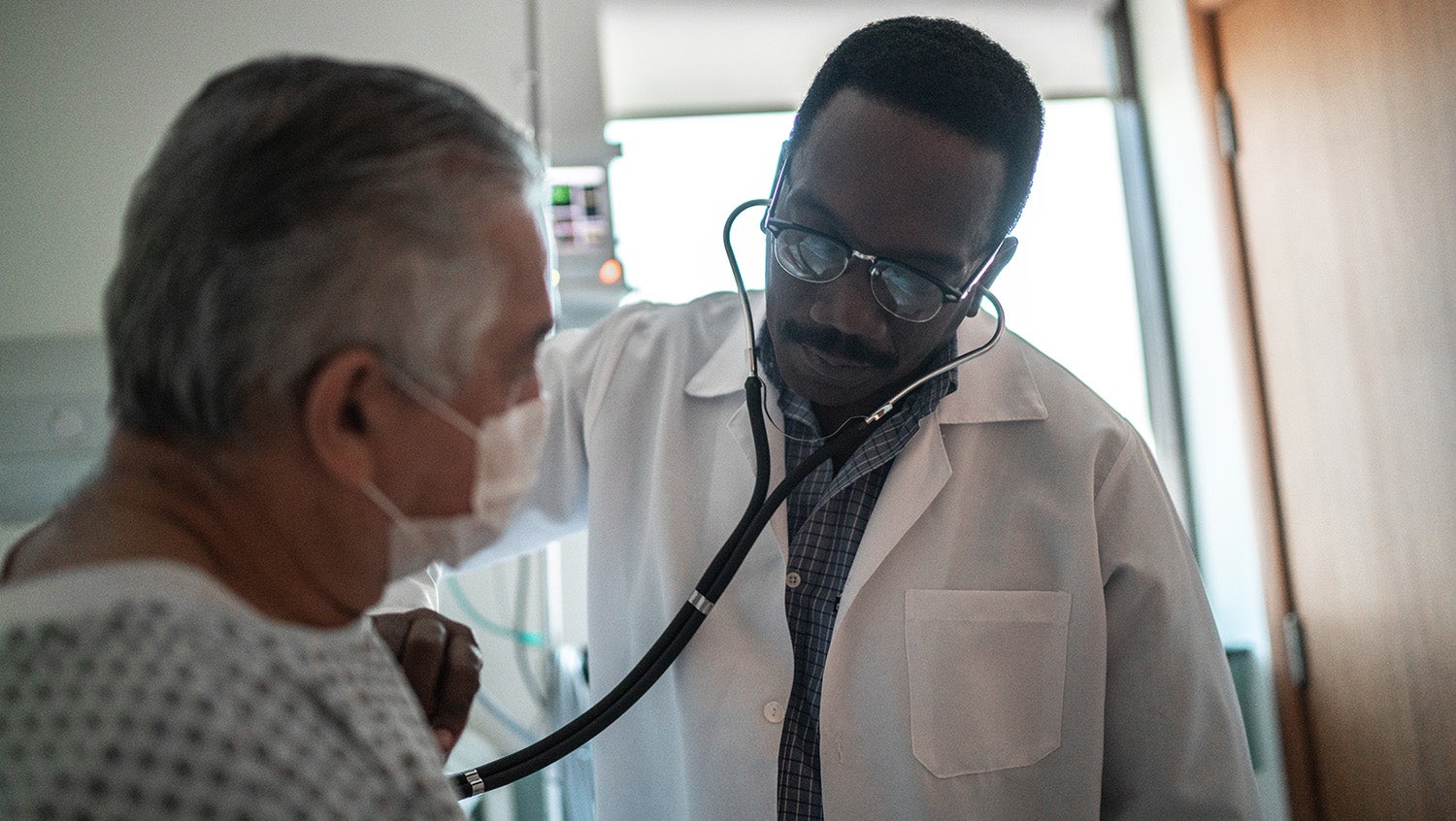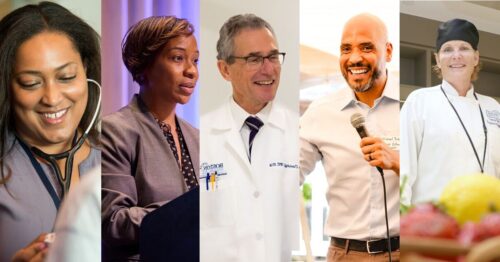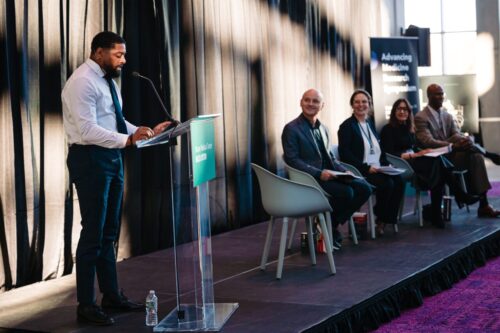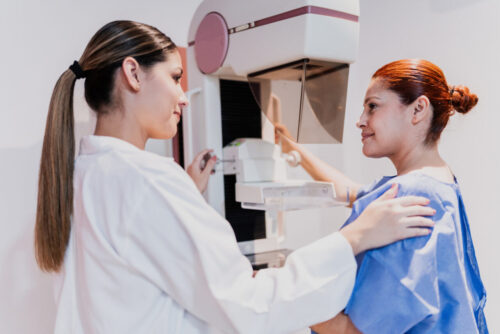BMC's New Long COVID Clinic Aims to More Holistically Treat Patients
August 12, 2021

Getty Images
Caring for patients with long COVID symptoms requires the attention of many clinical departments to support the physical, mental, and social implications.
One in five outpatients aged 18 to 34 in the U.S. have reported not being able to return back to their usual state of health 14 to 21 days after their original COVID-19 diagnosis. They reported symptoms affecting several different organ systems—including fatigue, lack of concentration and appetite, memory loss, sleep and mood disorders, muscle and joint pains, and the persistence of symptoms they experienced during the acute illness, including coughing, shortness of breath, and loss of taste and smell. Together, the symptoms are known as post-acute sequalae of SARS CoV-1 infection, or “long COVID“—a condition that medical experts are only just beginning to understand, evaluate, and manage.
In most patients, these symptoms improve over time (and there is some evidence showing that vaccination may actually help relieve long COVID symptoms) but they still have an incredible impact on a person. Understanding this, the Biden administration announced in July 2021 that long COVID conditions can rise to a level of disability and should be considered a disability under civil rights laws. In December 2020, Congress also provided $1.15 billion in funding for the National Institutes of Health to support research into these prolonged health consequences of the virus.
To more effectively and efficiently treat long COVID patients, Boston Medical Center has built the comprehensive, multi-disciplinary ReCOVer Long Covid Clinic.
This new clinic has the goal of providing patient-centered care with collective evaluation tailored to the specific needs of the patient—all in one place. The care providers involved in the clinic are from a range of subspecialties: infectious diseases, pulmonary, cardiology, neurology, behavioral health, and rehabilitation therapy, including physical therapy, respiratory therapy, and occupational therapy. As needed, the clinic will also collaborate with dermatology and ENT. Patients can access the new clinic through their primary care physician or self-referral.
Jai Marathe, MD, the founding director of the Long COVID Clinic and an infectious diseases physician at BMC joins HealthCity to share her experience of setting up this new clinic, including serving the safety-net hospital’s patient community, which includes low-income families and underserved populations who have been disproportionately impacted by the pandemic already.
HealthCity: How prevalent are you finding long COVID to be?
Jai Marathe, MD: One of the biggest challenges we experienced when approaching the setup was demonstrating the prevalence of long COVID symptoms; figuring out how many people actually needed help, and if it would make it a valuable resource to the patients in our community.
If you look at the data now, there is a large range where 10 to 25% of patients who are recovering from COVID-19 suffer from long COVID symptoms. It’s important for people to understand that this data is skewed to patients who reported their symptoms in surveys or who agreed to participate in studies. This leads me to believe that we won’t know exactly how prevalent long COVID is for a while yet—and that it may be more prevalent than we think.
HC: Is long COVID unique in the way that it affects people during the initial COVID-19 virus recovery period, in comparison with other viruses?
JM: Identifying long COVID as a unique syndrome was a challenge. It is unique for recovery post-COVID, but other viral illnesses also have a post-infection recovery period, just not as long. We haven’t seen this high of a percentage of patients affected by a recovery period like this before and with such variable timelines of recovery phases.
HC: How did physicians originally treat long COVID symptoms and how does that compare to how it is treated now?
JM: The original long COVID treatment model was like we were trying to board the plane when it was already in flight. A lot of these patients had already been referred to subspecialties. For example, if you are recovering from COVID-19 and you have shortness of breath that is long-lasting, and your primary care physician cannot figure out why that is, you were being seen by the pulmonary department. If you were experiencing more fatigue or chest pain, you were being seen in cardiology.
The goal now is that the patients will belong to all subspecialties, in communication with each other, and be treated for all residual symptoms as one full condition of long COVID.
HC: What were the challenges of setting up Boston Medical Center’s Long COVID Clinic?
JM: It was challenging when patients were looking to the medical community to tell them what to do, while doctors ourselves were still learning about the condition and how to treat it.
Originally, we didn’t have a clear message of when patients should come into care for long COVID, so we relied on patients following up with their primary care physicians and then being referred. We now allow for people to self-refer. There are challenges to the self-referral process, especially if the patient’s insurance requires a primary care physician (PCP) referral, and we are still figuring out a way to make this process easier for patients to navigate. Additionally, for patients without a PCP we can connect them with a PCP if they self-refer.
We were also combatting the patient challenges of travel to the hospital, the fear given the risks of infection involved, and the sheer amount of symptoms that some patients were experiencing.
HC: Are there concerns about the social impacts of long COVID on vulnerable patients?
JM: I always wonder about the role that loss of income has played. We isolate patients who were positive for COVID-19. Then, as soon as they are finished their isolation, if patients went to their employer and said, “I have long COVID,” would that have created fear for employers, or would they have been comfortable with their employees coming back? We know that a lot of workplaces required a negative COVID test result to return to work, and in a lot of cases, that took a while for people to be able to get.
We have been assisting patients with accessing community resources, such as rental assistance and food resources—things that may have been challenging to a lot of patients who have been experiencing delayed symptoms and have been unable to go back to work. This is something we have done since the beginning of April 2020. We realized that a lot of patients struggle with the social impacts as well as their health implications of COVID-19, and some had a harder time bouncing back.
HC: As we continue to learn from long COVID, what needs to happen next?
JM: We need to be able to allow short-term or long-term disability applications for patients who are experiencing prolonged recovery. And we need to convene a group of all the stakeholders, including legislators, physicians, even patient advocates or patient representatives who are part of a care team, and talk through together what the community is experiencing. We also need to engage our peers in insurance and activate a billable insurance code to make this an easier path for patients to navigate. By doing this, we can all come up with an even more comprehensive plan to support these patients.
BMC and community health center providers can refer patients to the clinic directly through Epic. Patients can also self-refer by calling the Infectious Diseases Department at 617-414-4290


